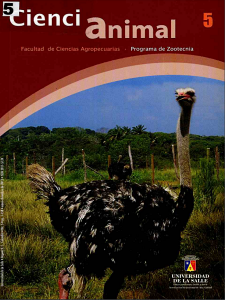Abstract
Restricted suckling and early weaning have been proposed as a solution to minimize the nutritional stress of the lactation period and postpartum anoestrus in cattle. The objective was to assess the nutritional behavior of calf subject to restricted nursing and early weaning in commercial zebu cattle. Three treatments were studied: traditional nursing (AT, for its initials in Spanish) in grazing and weaning at 240 days of age; restricted nursing (AR, for its initials in Spanish), together with base-forming food and weaning at 120 days of age, and complemented restricted nursing (ARS, for its initials in Spanish) with base-forming food and 10 g/kg of a commercial source of Saccharomyces cerevisiae and weaning at 120 days of age of commercial zebu calf in the foothills of Casanare. Measurements were performed on the consumption of food supplement, body weight and gaining body weight. AT 120 days of age, the calf with ARS and AR showed more body weight than the AT group (w < 0.05) with an average weight of 125 ± 2.2, 128 ± 2.4 and 115 ± 2.2 kg each. Both traditional and early weaning reduced the growth of calf, therefore the body weight after 12 months did not show a significant difference among the treatments. These results allow us to conclude that restricted nursing and early weaning are feasible in a system to breed zebu calf in the foothills of Casanare.Downloads
Download data is not yet available.



